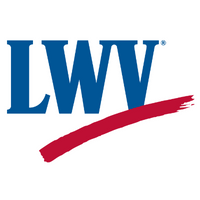Land Use
Position in Brief
Support more comprehensive statewide land use planning and adoption of a comprehensive land use policy; support a comprehensive program for the preservation of agricultural and open space lands for Pennsylvania; promote environmentally sound agricultural practices in Pennsylvania.
Background
A two-part study of state land use issues resulted in consensus on comprehensive state land use policy and planning (1976) and the effect of taxation on agricultural and open space lands (1977). The position was updated in 1983 and 1991 to include language promoting agricultural production in Pennsylvania and indicating the importance of environmentally sound agricultural practices.
LWVPA supported legislation permitting preferential assessment for farmland and open space and has opposed efforts to weaken its farmland preservation intent. We supported legislation which allows creation of “agricultural security areas” as a means of preserving farmland, and passage of a $100,000,000 bond issue in 1987 to provide funds for the purchase of agricultural conservation easements (development rights) in those areas.
In 1988, the League supported amendments to the Municipalities Planning Code that authorized local governments to include water supply planning in their comprehensive planning and to protect sources of water supplies by zoning.
LWVPA supported the Keystone Recreation, Park and Conservation legislation and bond issue referendum of 1993 which provides annual funding for planning and implementation by municipalities and counties for open space conservation, river conservation, trails and greenways, local parks and recreation.
Since the late 1990s, the League has opposed state “takings” legislation that would require compensation to owners of property whose value is decreased by any action, regulation or decision of local or state government. Such a law would effectively inhibit any efforts at comprehensive land use planning.
Most recently, LWVPA supported land use legislation passed in June 1999 that provides a number of improvements to the PA Municipalities Planning Code, including authorization for voluntary multi-municipal planning and zoning and for transfers of development rights across municipal boundaries. Priority for state funding may be given to municipalities that adopt plans and ordinances consistent with county or regional plans.
This important land use legislation gives the tools to local governments to preserve agricultural land, open space and historic heritage, as well as to revitalize declining communities that wish to attract growth and development. League members can play an important role in encouraging their communities to take advantage of these tools.
Position in Detail
A comprehensive statewide land use plan:
Should contain overall state guidelines and minimum standards set by the state for various levels of governmental action.
Must contain critical area guidelines, which are consistent with the nature, size, and criticality of the area.
Should have planning for critical areas exercised by a level of government higher than the local level, with local input, and consistent with state guidelines.
Should allow the state to exercise veto power over critical area decisions if they are inconsistent with state guidelines.
Should require coordination with other statewide plans in Pennsylvania.
Should coordinate plans and policies of regional agencies.
Should recommend that local governments exercise at least a minimum level of planning and control over land use.
Should require impact statements on major public and private investments.
Must provide for continuing citizen education and citizen participation at every stage of the planning process.
Must provide for local input and initiative.
Must stress enforcement.
The League supports the establishment of a statewide land use board or commission, which would have advisory and regulatory authority to implement a land use policy plan. This board or commission should be:
Representative of all interests and of all geographic areas.
Accountable and nonpartisan in nature.
Composed of members free from conflicts of interest.
Composed of an existing body or selected from an existing body in order to avoid increasing bureaucratic levels.
Local Decision
Local governments should exercise control over land use decisions that are of purely local concern.
Land use decisions for uncontrolled areas where local governments fail to regulate should be made at the county level, subject to compliance with state guidelines.
Appeals Board
When a conflict exists in deciding whether local, county, or state plans should take precedence under a statewide program, an appeals board with power to arbitrate conflicts among governmental bodies, and among citizens and governmental bodies, should be established. This board should:
Be composed of nonpartisan citizen representatives with no vested interests.
Set time limits on the appeals process.
State Aid
In administering all state aid, duplication of efforts should be avoided, coordination should take place, and the aid should be used for intended purposes.
In order that state government can help local governments develop and exercise local land use management functions, the League supports:
Increased state financial aid for research.
Increased state technical assistance.
Increased state data information.
Agricultural and Open Space Lands
The League supports a comprehensive program for the preservation of agricultural and open space lands for Pennsylvania, and promotion of environmentally sound agricultural practices. Such a program should:
Be flexibly designed to address the variety of needs that exist throughout the Commonwealth.
Include differential assessment and agricultural districts.
Include a reappraisal of the tax structure.
Include investigation, by the state, of the concept of development rights.
Strengthen programs for the acquisition of open space lands.
The League supports differential assessment for actively farmed agricultural lands and open space as one means of preserving these areas in the Commonwealth.
A differential assessment program should contain:
Minimum income and acreage requirements for eligibility.
Eligibility requirements for open space lands, which are flexible enough to include critical environmental areas and to encourage the preservation of smaller pieces of open space, especially in densely populated areas.
Provisions that restore a portion of deferred taxes to a community when land changes use and include a disincentive for change in land use.

